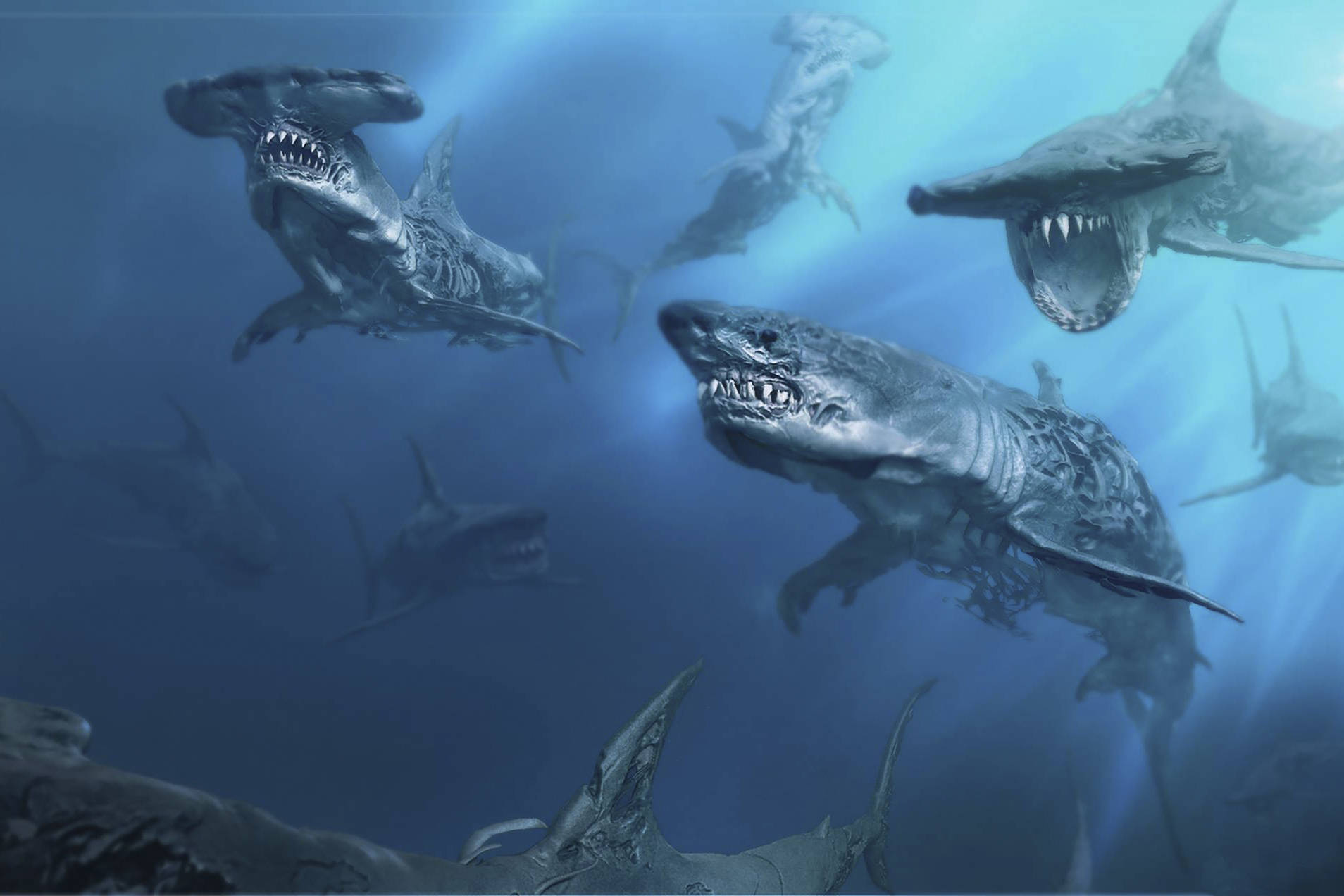Almost everything worth anything in the fifth Pirates of the Caribbean movie is geared toward spectacle. You want to see ghost sharks? We have great whites and hammerheads, rotted away but still capable of taking a bite out of Captain Jack Sparrow’s dinghy. Want to see Sparrow escape from a guillotine? A rescue sends our drunken hero somersaulting while still strapped into the contraption, the blade sliding up and down toward his neck as it tumbles head over heels. Want to see an entire building dragged through the streets of a Saint Martin town while Sparrow rides it? It’s here. This movie doesn’t have much in the way of plot or character, but maybe this franchise has simply returned to its origins as a Disneyland ride: disconnected sensations, strung together at regular intervals.
Pirates of the Caribbean: Dead Men Tell No Tales is a very expensive gamble on the continued life of this series, which seemed exhausted with the ho-hum On Stranger Tides in 2011. We still have Johnny Depp at the helm as Captain Jack, looking like he’s been aged in a rum cask for the intervening years. Depp’s joyful first fling at the part (way back in 2003) was a glittering example of how a wickedly creative actor can take over an underconceived movie and make magic. Each sequel has diminished a little more of that joy. If you’ve seen the trailer for Tales, you’ve seen all of Depp’s funny lines, except they’re funnier in the trailer because the timing is better.
A few strands of story are alive from previous installments, but otherwise we get two new young lovers: Henry (Brendan Thwaites), whose occupation appears to be professional dullard, and Carina (Kaya Scodelario), an amateur scientist and vivid embodiment of Disney’s mission to provide Girls Rule role models. Both are in search of Poseidon’s mythical trident, which has, like, major powers. Scodelario, who starred in Andrea Arnold’s eccentric 2011 version of Wuthering Heights, is by far the liveliest actor in the movie; she’s more masculine than Henry, and very nearly as feminine as Captain Jack. Geoffrey Rush returns as peg-legged Captain Barbossa, and Javier Bardem joins the franchise as a ghost captain vowing revenge on Sparrow because of a decades-old defeat (a sequence depicted here with an eerily 21 Jump Street-vintage Depp, digitally youthanized).
The plot is a tired rehash. Still, there’s something to be said for big, buoyant spectacle in a summer movie. (I mentioned the ghost sharks, right?) Directors Joachim Ronning and Espen Sandberg did Kon-Tiki, so I guess they were hired because they had already dealt with a large body of water. They do have a feel for bigger-than-life action scenes, and the absurdity of the guillotine-escape sequence has a little of the jumpy humor of Richard Lester’s Three Musketeers movies. In another showdown, the ocean parts and the characters run around on the sea floor, an eye-filling piece of loopiness. I also enjoyed the brief scene with Paul McCartney in pirate garb, in part because McCartney vocalizes a deep cut from a Beatles album (I won’t spoil it) and in part because his dialogue bears a touch of Monty Python—I wouldn’t be surprised to hear that Eric Idle wrote this exchange.
These isolated bursts of imagination don’t turn Tales into a good movie, and when everything is gigantic it leaves little room for charm. But at least the forward motion of this theme-park ride is swifter than that of previous installments (129 minutes as opposed to part three’s waterlogged 169). Hollywood, we are told, is currently nervous about the underperformance of once-reliable properties, as it seems an entire generation of repetitive formulas may have wearied the audience. The box-office take of this Pirates chapter will tell a lot about that: Is there life left in these franchises, or do we have a bunch of ghost sharks still swimming along blindly? Pirates of the Caribbean: Dead Men Tell No Tales ,Opens Fri., May 26 at the IMAX Boeing Theatre and elsewhere. Rated PG-13. film@seattleweekly.com






